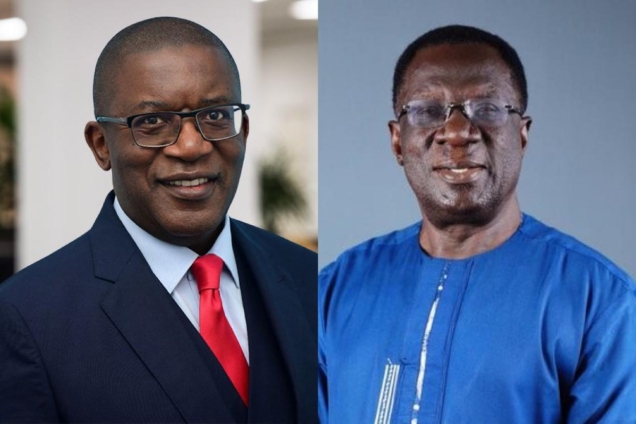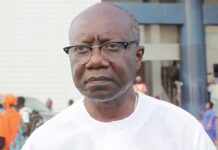The Co-chair of the Citizens Movement Against Corruption, Edem Senanu, has said plea bargaining is “the best way to go” regarding the $2 million Sky Train scandal involving some public officials in the erstwhile Akufo-Addo administration.
Plea bargaining, which private legal practitioner Christian Malm-Hesse claims is not entirely new to Ghana’s jurisprudence, having been introduced in 2022 into the Criminal and Other Offences Act, is a negotiation between the accused person and the Attorney-General.
He explains that in instances where prosecution is being carried out by state officials other than the Attorney-General (A-G), the A-G’s consent must first be sought before the process commences.
The lawyer explained that plea bargaining gives room to reduce charges against an accused, drop them, or reduce the punishment for a particular crime. It allows the accused to return what they’ve looted from the state without going through a lengthy legal process.
After proceedings on Tuesday, Deputy Attorney-General Dr. Justice Srem-Sai, indicated in a media interview that the state will be willing to consider plea bargaining if the accused opt for that option, given the aim is for the state to retrieve the lost sum.
This development has raised concerns, with many expressing fears that potential offenders won’t be deterred from engaging in criminality.
But reacting to the concerns on Ghana Tonight on TV3 Tuesday, May 13, 2025, Mr. Senanu indicated that “prevention is better than prosecution.”
According to him, “if you can find out other ways of retrieving monies and assets without necessarily having to throw some more good money into prosecution and spend many more years in court deploying the best of your personnel just trying to retrieve money from one person and be stressed, it’s always in the best interest of the state [if] persons [are] willing to give back whatever they’ve taken [from the state].”
He noted that plea bargaining sometimes comes with “punitive measures—you pay some premium, some kind of fine in addition to what was taken, or other forms of sanctions,” indicating that the practice “is in good order.” “It’s the best way to go.”
The comments come after the Office of the Attorney-General formally charged former Ghana Infrastructure Investment Fund (GIIF) CEO, Solomon Asamoah and ex-Board Chairman, Prof. Christopher Ameyaw-Ekumfi, for their roles in the controversial Accra Sky Train project, which allegedly cost the state $2 million without authorisation.
The charges filed at the High Court (Criminal Division) on Tuesday, May 13, 2025, include wilfully causing financial loss to the state under the Criminal Offences Act, conspiracy to commit crime through intentional dissipation of public funds, and intentional dissipation of public funds under the Public Property Protection Decree.
According to the prosecution, in February 2019, the accused authorised a $2 million payment from GIIF to Africa Investor Holdings Limited for preliminary work on the Sky Train project – a system that was never built. The payment was reportedly made without proper board approval.
The Sky Train project, initiated in 2018 as a public-private partnership for an urban rail system in Accra, involved a memorandum of understanding between the Ministry of Railways Development, Africa Investor Holdings, and GIIF. However, investigations revealed the $2 million disbursement lacked proper due diligence and violated GIIF’s governance protocols.
Attorney General Dr. Dominic Ayine, stated that the accused acted outside their mandate, causing significant financial harm to the state. “The payment was unauthorised, and the project never materialised. This is a clear case of financial misconduct,” the filing stated.
The case will proceed in the High Court, with the AG’s office indicating some GIIF board members have agreed to testify as prosecution witnesses.
This prosecution forms part of the government’s broader crackdown on financial malfeasance, following earlier warnings of pending charges in the Sky Train and NSS ghost names scandals.












